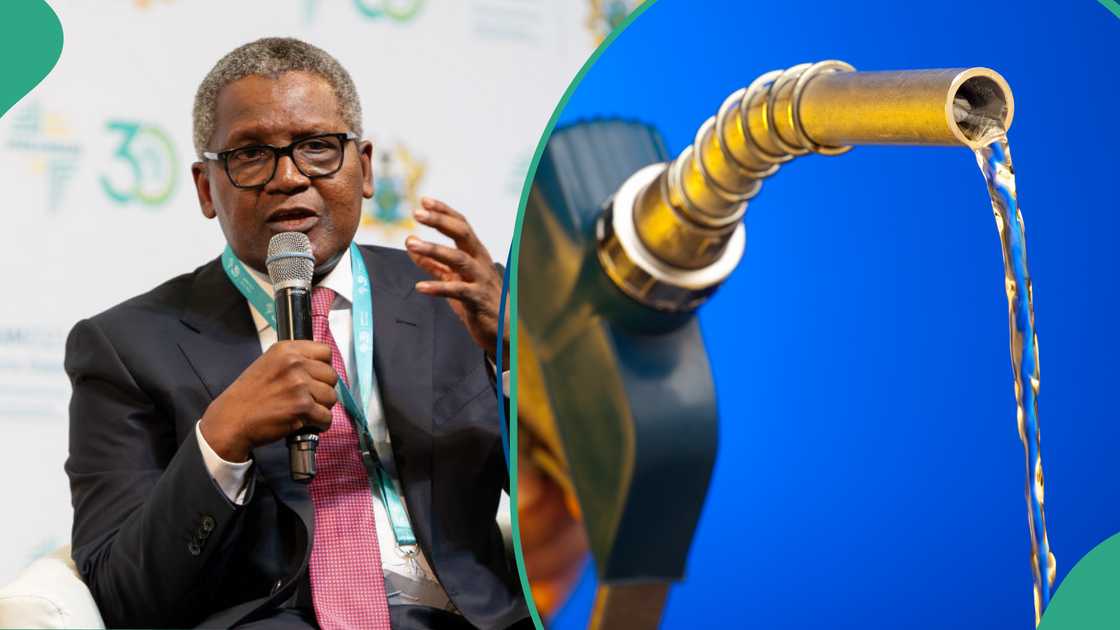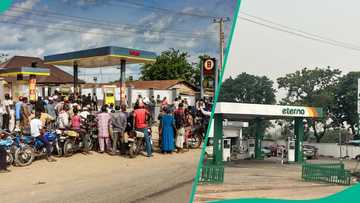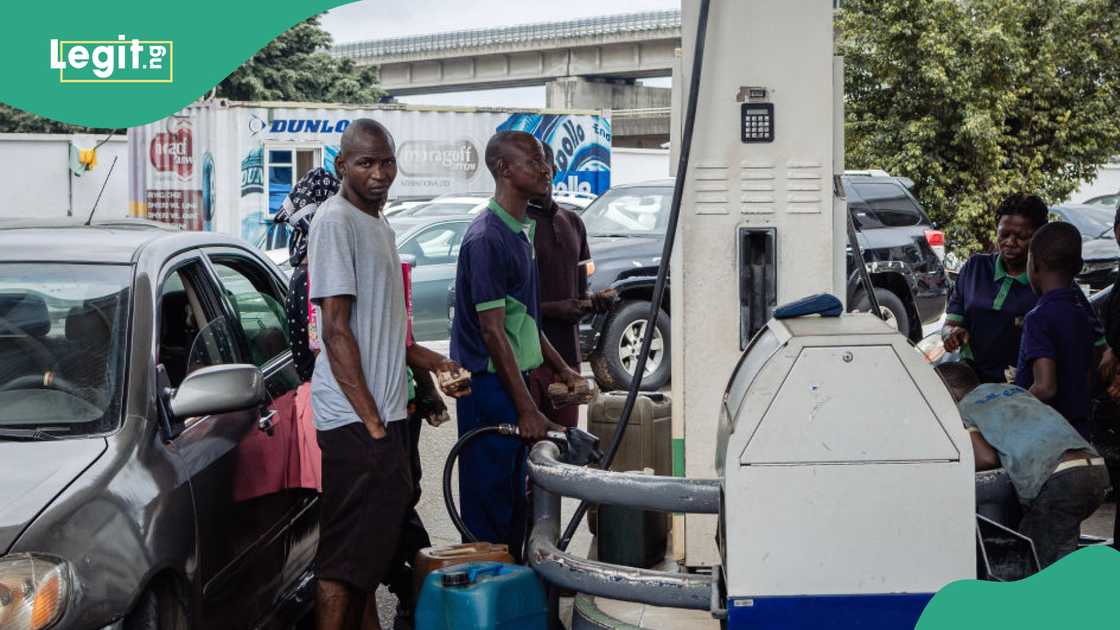Dangote Refinery’s Woes Deepen as Petrol-Producing Unit Reportedly Breaks Down
- The trouble at Dangote Refinery has reportedly deepened as its petrol-producing unit has shut down
- Also, data shows that the refinery is facing crude oil challenges as intakes slowed in September
- The refinery’s challenges are also compounded by industrial action as oil unions protest the sack of 800 Nigerian workers at the facility
Pascal Oparada, a reporter for Legit.ng, has over ten years of experience covering technology, energy, stocks, investment, and the economy.
Amid the ongoing industrial dispute against Dangote Refinery by the Petroleum and Natural Gas Senior Association of Nigeria (PENGASSAN), the mega refinery has run into new challenges.
Africa’s largest refinery is reportedly grappling with operational challenges as crude oil inflows drop sharply in September 2025.

Source: Getty Images
Crude oil shortage hits Dangote Refinery
Also, the facility’s petrol-producing unit and residual fluid catalytic cracker (RFCC) have allegedly broken down.
According to the petroleum product-tracking platform, PetroleumPriceNG, the failure to issue new pro forma invoices has triggered hoarding at the refinery, leading to higher petrol prices.
Recall that Legit.ng reported that the 650,000 bpd-capacity refinery increased its ex-depot prices for petrol to N860 per litre, up from N825.
Experts attributed the increase, which also affected other depot operators, to a rise in crude prices.
Meanwhile, crude intake into the mega refinery dropped sharply this month.
Data from Vortexa shows that inflows dropped to about 250,000 barrels per day.
Dangote Refinery’s RFFC goes offline
Energy policy analysts warn that if the scenario continues, it will be the lowest crude supply to the Lekk-based plant since September last year, when Fitch downgraded it and banks tightened finance lines, shrinking its ability to purchase crude.
With less feedstock coming in, the facility cannot run at optimal capacity, which is currently estimated at 500,000 barrels per day.
Also, it shows Nigeria's vulnerability as the world’s largest single-train refinery struggles to maintain stable production.
As crude supply dips, the RFCC has also gone offline for maintenance, with industry watchers speculating that the unit may not resume full operations until early October.

Read also
Fuel prices may skyrocket as PENGASSAN strike shuts Dangote Refinery, threatens nationwide blackout
Dangote increases fuel export
Meanwhile, the refinery has redirected more low-sulphur straight-run fuel into the export market.
Data shows that exports hit 320,000 barrels per day this month, the refinery’s highest cargo shipment on record.
The shift may keep revenue coming, but it starves the Nigerian and African market of the much-needed petroleum product supply.
Fuel prices affected in Nigeria, Africa
Experts say product inflows from other regions into West Africa have slowed to less than one million tonnes of petrol and blending components in September.
The figure is reportedly below the year-to-date average and marks the weakest September arrival on record.
This means West Africa is receiving fewer petrol imports as Dangote struggles to stabilise operations.
The squeeze increases the refinery’s dominance as its failure could have multiple ripple effects in the petroleum product market.
The production challenges have affected the downstream sector.
In early September, the massive plant halted sales, promising to resume allocation later in the month.
Depot owners raise prices
Already, the delay has created panic, as marketers holding old stocks hoard them, selling at premium rates.
Reports say depot prices surged above Dangote’s N820 per litre ex-depot price of N820 to N870, while Wosbab Lagos recorded the highest daily increase at almost three per cent.
The broader implications
The situation at Dangote demonstrates that sheer size does not guarantee stability.
The refinery's challenges highlight Nigeria's precarious balance between energy security and vulnerability to global oil volatility.
Every disruption quickly translates into inflationary pressures within the downstream market.
For Dangote, the immediate priorities are clear: restore RFCC operations and ensure timely PFI issuance.

Source: Getty Images
For Nigeria, the lesson is more profound: without enhanced upstream output and improved policy coordination, the aspiration of affordable, dependable petrol may remain elusive, even with Africa's largest refinery.
Dangote Refinery dumps dollar sales
Legit.ng earlier reported that Dangote Refinery suspended plans to sell petrol in dollars just a day after halting sales in naira.
The facility disclosed in an email to customers that the decision followed the intervention of the Nigerian government.
According to the statement, the decision came as the Naira-for-Crude Technical Committee Chairman intervened.
Proofreading by Kola Muhammed, copy editor at Legit.ng.
Source: Legit.ng




